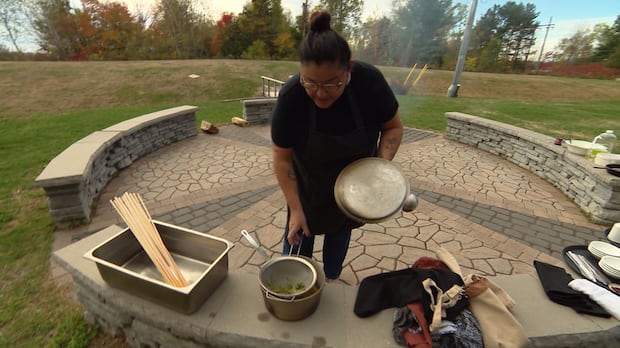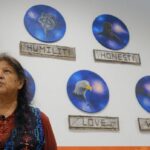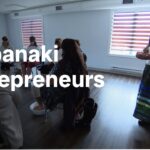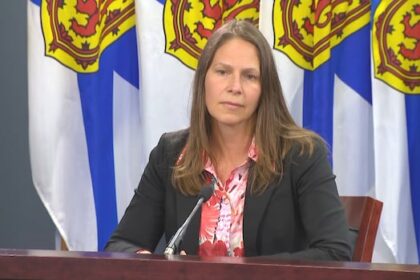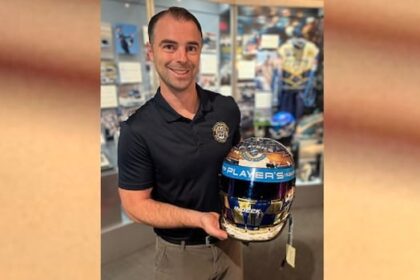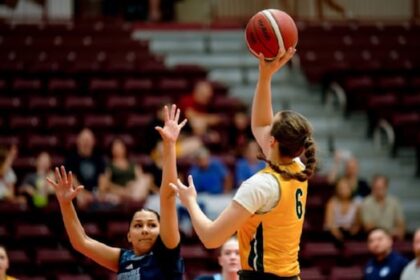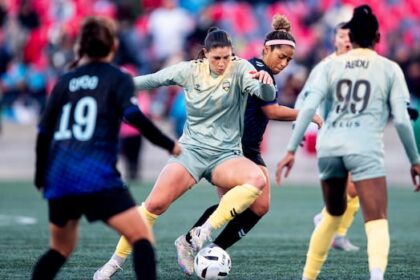IndigenousAt the Atlantic Indigenous Tourism Summit in Fredericton, N.B., Wabanaki entrepreneurs came together to share their craft through an afternoon of workshops.An afternoon of workshops showcased local First Nations businesses in New BrunswickSis’moqon · CBC News · Posted: Oct 17, 2025 2:44 PM EDT | Last Updated: 2 hours agoChef Melinda Paul prepares cedar tea ahead of her afternoon workshop with chef Darren Peter Paul. (Michael Heenan/CBC)The smell of a bonfire was in the air at Maqiyahtimok Centre, where cedar tea steeped beside maple-infused salmon along with the famous bannock dough made by Wolastoqiyik chef Melinda Paul.Melinda teamed up with Mi’kmaw chef Darren Peter Paul at the centre in Sitansisk (St. Mary’s) First Nation for an afternoon workshop for people attending the Atlantic Indigenous Tourism summit in Fredericton. For Melinda, from Sitansisk First Nation which is just across the river from Fredericton, cooking these traditional meals is all in a days work. “It all comes from the heart when you love what you do,” said Melinda. Melinda runs Lindy’s Take Out in Neqotkuk (Tobique) First Nation, about 180 kilometres northwest of Fredericton, but also does catering on the side.“I do just about everything,” she said. “But I’m focusing on Indigenous cooking and learning how to forage and cook with the things we used growing up.”Wolastoqiyik chef Melinda Paul works in her home community of Sitansisk First Nation in New Brunswick, but also runs a takeout spot in Neqotkuk First Nation. (Michael Heenan/CBC)Working alongside Melinda is Darren Peter Paul, from Metepenagiag Mi’kmaq Nation, about 150 kilometres northeast of Fredericton.Darren is a private chef and co-owner of Wabanaki Food Truck which serves foods from across Wabanaki territory like seafood, duck, corn, squash, beans and a more contemporary staple — bologna.Darren and Melinda’s afternoon course highlighted their specialized skills and backgrounds in preparing traditional foods.“We want to give people the chance to have their traditional foods and do them in a traditional way,” said Darren.WATCH | Wabanaki Entrepreneurs share their skills:Wabanaki entrepreneurs blend business and culture At the Atlantic Indigenous Tourism Summit, Wabanaki entrepreneurs across New Brunswick share how their cultural passions align with their businesses. Darren reflected on the teachings he’s received around food. He talked about only taking what you need, serving elders first, and being sure to offer a plate to the spirit world. “I really like to put good intentions into the cooking as well, because I feel like a lot of people can actually really taste that,” said Darren. Upstairs, Angela Beek, a Wolastoqiyik artist from Sitansisk First Nation, carefully prepared sweetgrass for her afternoon course where she taught how to craft sweetgrass dolls. “I love passing it on because I know when I learn this stuff it fills up parts of me I didn’t even know were empty,” Beek said. For Beek, the dolls carry deep meaning. She recalled learning of their significance in the late 19th and early 20th century when First Nations medicines and ceremonies were banned under the Indian Act.Wolastoqiyik artist, Angela Beek, owns Angela Beek Creations and often hosts workshops passing on her skills to other people. (Michael Heenan/CBC)She said people back then used the sweetgrass dolls as decorations in their homes, in an attempt to hide medicines from Indian agents.“We kind of hid things in plain sight,” said Beek.In the next room, Shelly Perley of Esgenoôpetitj First Nation, about 183 kilometres northeast of Fredericton, prepared cedar foot baths, which filled the room with the grounding scent of medicine.She credited her mother, traditional healer and elder Jeannie Bartibogue, for passing down the teachings she now shares as her livelihood. Shelly Perley, owner of Jumi’s Wellness, combines modern wellness techniques with Wabanaki healing teachings and medicines. (Michael Heenan/CBC)“I always acknowledge her when I talk about the cedar footbath and how I learned it or even the blanket ceremony,” said Perley. “She’s always with me.”Now she is passing on those teachings in her business, Jumi’s Wellness, where she incorporates her Mi’kmaw cultural practices with modern wellness tourism. “It’s nice because our people are wanting that self-help and to bring in the culture and open those doors and get on their healing journey,” said PerleyABOUT THE AUTHORSis’moqon is a Mi’kmaw woman from Ugpi’ganjig First Nation. She is a reporter with CBC Indigenous. She currently resides in Kjipuktuk, also known as Halifax. You can email her at sis.moqon@cbc.ca with story ideas.
Thursday, 5 Mar 2026
Canada – The Illusion
Search
Have an existing account?
Sign In
© 2022 Foxiz News Network. Ruby Design Company. All Rights Reserved.
You May also Like
- More News:
- history
- Standing Bear Network
- John Gonzalez
- ᐊᔭᐦᑊ ayahp — It happened
- Creation
- Beneath the Water
- Olympic gold medal
- Jim Thorpe
- type O blood
- the bringer of life
- Raven
- Wás’agi
- NoiseCat
- 'Sugarcane'
- The rivers still sing
- ᑲᓂᐸᐏᐟ ᒪᐢᑿ
- ᐅᑳᐤ okâw — We remember
- ᐊᓂᓈᐯᐃᐧᐣ aninâpêwin — Truth
- This is what it means to be human.
- Nokoma


